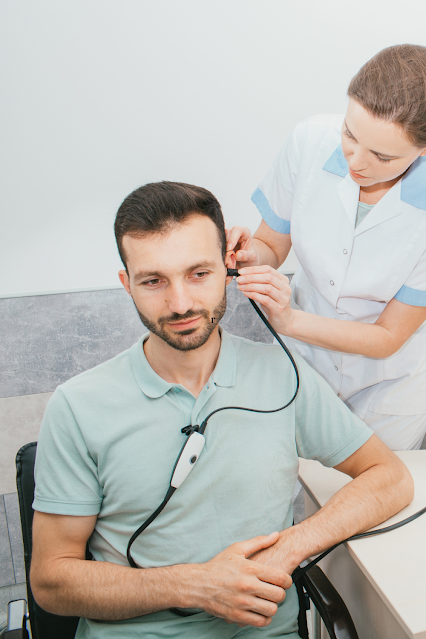Hearing is an essential sense that connects us to the world around us. However, various factors can affect our hearing abilities, making it crucial to monitor hearing health regularly.
There are several groups of individuals who particularly need to be mindful of their hearing and consider undergoing hearing tests.
People who live or work in loud environments are exposed to loud noises frequently. This could affect those working on a construction site, factory, or even at music venues. Prolonged exposure to loud noises can lead to noise-induced hearing loss, which is often irreversible. Therefore, it is essential to protect yourself from a loud environment by wearing hearing protection devices, such as earplugs or earmuffs to reduce the impact on your ears. Regular hearing tests can help detect early signs of hearing loss and take the necessary precautions.
People with diabetes are also at risk. Indeed, high blood sugar levels associated with diabetes can cause damage to the blood vessels and nerves in the inner ear, resulting in sensorineural hearing loss. This type of hearing loss is usually gradual and affects both ears. Individuals with diabetes should be aware of this link and undergo periodic hearing examinations to monitor their auditory health. Maintaining good blood sugar control and seeking appropriate treatment can help mitigate the risks.
Those who already experience some degree of hearing loss should regularly monitor their hearing health to ensure the condition doesn’t worsen over time. Regular tests can help determine the extent of hearing loss, identify any changes, and provide appropriate interventions.
Finally, individuals who have sustained traumatic injuries to the head, the ear, or the jaw can notice a significant impact on hearing. Testing the hearing abilities is crucial to assess any damage and provide appropriate treatment.
A hearing test, also known as an audiometric evaluation, is a comprehensive assessment of your hearing ability. The audiologist’s hearing test conduct is indispensable to identifying any hearing loss and guiding the course of correction and treatment.
During the test, the hearing specialist will typically gather information about your medical history and existing conditions that may affect your hearing. Physical examination, such as observing the ear canal and eardrum will also help determine potential anomalies or blockages.
Finally, the test involves pure-tone audiometry, which requires wearing headphones and listening to a series of tones at various frequencies and volumes. During this part of the test, the audiologist will determine the range of frequencies and volumes that you can hear. Some people with hearing loss, for example, may experience issues with only some frequencies but can be comfortable hearing others.
Other parts of the test require listening to words and sentences and repeating them back. This focuses on your ability to understand speed at different volumes. Different issues can affect your speech processing even if they are not related to hearing loss.
Lastly, further tests measure your eardrum movement and the function of the inner ear to determine how you process hearing.
If a hearing test reveals hearing loss, you will work with an expert who can interpret the test results and qualify the degree of hearing loss present. Based on the findings, they may suggest different solutions, such as wearing hearing aids. Bear in mind that nowadays, some hearing aids are fully invisible and can be custom-molded to the inside of your ear during a specialist appointment.



Post a Comment